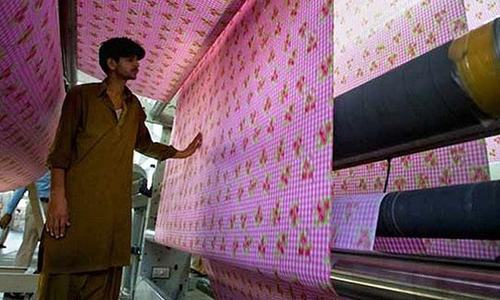LAHORE: A European Union (EU) Commission on Trade delegation is arriving in Pakistan on Thursday (today) to directly check all stakeholders’ compliance with the EU conditions on Generalised Scheme of Preferences (GSP), collecting basic data vital for continuation of the duty-free exports facility to Pakistan.
This was stated by European Union Ambassador to Pakistan Jean-Francois Cautain in an interview with Dawn here.
Since Jan 1, 2014, Pakistan has been benefitting from tariff preferences (mostly zero duties on two-thirds of all product categories) under the GSP Plus arrangement. In order to maintain the facility, Pakistan has to continue ratification of and effectively implement 27 core international conventions on human and labour rights, environmental protection and good governance.
“Pakistan is yet to implement all the 27 international conventions it has had ratified and signed. The implementation is necessary for the continuation of the great facility. So far, the glass is half full and half empty,” Mr Cautain said.
The visiting delegation, he said, would stay in Pakistan for at least a week, meeting government officials, trading community, media personnel mainly in Islamabad and Lahore. It would seek answers to questions the EU had already sent to all these stakeholders regarding the enforcement of the 27 conventions. The feedback of the weeklong interaction would be a part of the final report to be issued in 2020 that would decide the future of the GSP Plus status for Pakistan.
“The implementation in these areas has been partial. For example, Punjab has made laws on child rights, but we want their full enforcement. We are witnessing a tendency to restrict freedom of expression in Pakistan for the past one year. They are promising legislation on torture but are not moving ahead.” he said.
Replying to a question, he said nearly 60 per cent of Pakistan’s population was under 30 years of age, adding that if educated, they could make Pakistan a prosperous country. He also said that 20 to 24 million children in Pakistan were out of school. “You should start quality education from the primary level. Technical vocational training must be a major part of education to provide the required human resource to Pakistan,” he added.
When asked about the EU’s view of the China-Pakistan Economic Corridor, the ambassador said the EU was all for connectivity. But the connectivity should be sustainable and two-way trade, he added.
Mr Cautain said democracy should continue in Pakistan. The past 10 years of democratic rule proved that democracy was taking roots in Pakistan. “It is good but it takes time to see a true democratic set-up. Yours is not perfect, and you will have to fight for it,” he said.
He also said the EU was watching the Pakistan Tehreek-i-Insaf government with interest. “We have noticed the vision of Prime Minister Imran Khan. He wants to fight poverty and corruption, desires regional and political stability, and good governance.”
Published in Dawn, October 18th, 2018














































